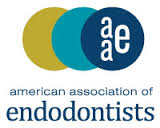Few things can have a bigger impact on your health or happiness than the quantity or quality of your sleep you’re getting. It’s nearly impossible to function, much less thrive, when you feel tired all the time. Many seasons in life can cause sleeplessness, like studying for final exams, stress at work or having a baby. But if you feel tired when you wake, even when you have gotten a full night’s worth of sleep, it could be because you’re suffering from sleep apnea, a serious condition that causes you to wake during the night because your airways have been blocked. You may have already heard that sleep apnea is often signified by snoring, and that is true. But did you also know your dentist may be able to help? If you are struggling to feel rested in the morning, it’s possible your preventive dentist could help treat sleep apnea.
What Causes Sleep Apnea?
- Sleep apnea is a condition, which causes the passageways of the throat to become blocked during sleep. This forces a person to wake up, often hundreds of times in a single night, leading to a poor quality of sleep.
- Warning signs of sleep apnea include snoring, but also choking or gasping for air during the night. Feeling tired or irritated when you wake can also be a symptom of sleep apnea or another sleeping disorder.
- Sleep apnea affects men more than women, but anyone that is overweight or has alignment issues of the jaw is more likely to develop obtrusive sleep apnea.
How Your Dentist Can Help
Oral appliance therapy can often be an effective way to help treat sleep apnea. That’s because an oral appliance, similar to a mouthguard used during sporting events, can help to properly align the jawline while you sleep.
This can, in turn, help prevent your airway from becoming blocked as you sleep.
In some cases, orthodontic treatment may also be an effective way to deal with obtrusive sleep apnea, as well as other jaw pains and problems that can be caused by misalignment.










